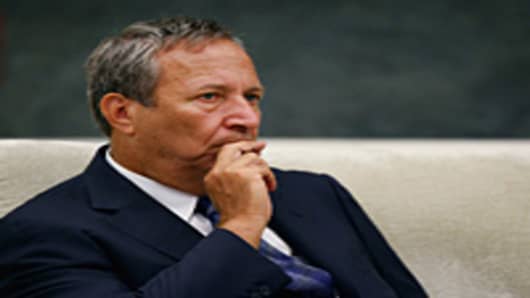The U.S. economic recovery was “ahead of schedule,” even as insufficient consumer demand continues to pose a risk, former Treasury Secretary Larry Summers said Thursday.
“If you compare what’s happened in this recession with other recessions that have a similar antecedent, we’re actually ahead of schedule on this recession,” he said on CNBC’s “The Kudlow Report.”
“That’s not any reason to be satisfied, and there’s a lot more that needs to be done," he said. "But it’s really completely misleading to compare a recession like this, caused by collapsing asset values, with the recession like the one we had in 1982 that was policy-caused in an effort to contain inflation.”
“The right comparisons for this recession are the kind of experience Japan had in the 1990s or the kind of experience that the United States had in the 1930s,” he added. “It’s a lot better than those experiences, and that’s been because there’s a strong policy response.”
Summers, who was director of the White House National Economic Council under President Obama and a former president of Harvard University, credited the current administration for policies that halted the “Depression-like conditions” six months after taking office.
“If you use — as many of your political persuasion like to — markets as evidence, we’ve had as strong a stock market through the Obama years as in almost any presidency since the Second World War,” he said.
Summers noted that the CBOE Volatility Index, widely considered one of the best gauges of fear in the market, was below normal from a historical standpoint — “and that it has fallen by more than two-thirds since the president came into office — hardly consistent with the kinds of arguments that a number of the critics are making.”




